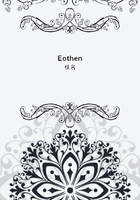
第55章
Beneath an altar gorgeously decorated, and lit with everlasting fires, there stands the low slab of stone which marks the holy site of the Nativity; and near to this is a hollow scooped out of the living rock. Here the infant Jesus was laid. Near the spot of the Nativity is the rock against which the Blessed Virgin was leaning when she presented her babe to the adoring shepherds.
Many of those Protestants who are accustomed to despise tradition consider that this sanctuary is altogether unscriptural, that a grotto is not a stable, and that mangers are made of wood. It is perfectly true, however, that the many grottos and caves which are found among the rocks of Judea were formerly used for the reception of cattle. They are so used at this day. I have myself seen grottos appropriated to this purpose.
You know what a sad and sombre decorum it is that outwardly reigns through the lands oppressed by Moslem sway. The Mahometans make beauty their prisoner, and enforce such a stern and gloomy morality, or at all events, such a frightfully close semblance of it, that far and long the wearied traveller may go without catching one glimpse of outward happiness. By a strange chance in these latter days it happened that, alone of all the places in the land, this Bethlehem, the native village of our Lord, escaped the moral yoke of the Mussulmans, and heard again, after ages of dull oppression, the cheering clatter of social freedom, and the voices of laughing girls. It was after an insurrection, which had been raised against the authority of Mehemet Ali, that Bethlehem was freed from the hateful laws of Asiatic decorum. The Mussulmans of the village had taken an active part in the movement, and when Ibrahim had quelled it, his wrath was still so hot, that he put to death every one of the few Mahometans of Bethlehem who had not already fled. The effect produced upon the Christian inhabitants by the sudden removal of this restraint was immense. The village smiled once more. It is true that such sweet freedom could not long endure. Even if the population of the place should continue to be entirely Christian, the sad decorum of the Mussulmans, or rather of the Asiatics, would sooner or later be restored by the force of opinion and custom. But for a while the sunshine would last, and when I was at Bethlehem, though long after the flight of the Mussulmans, the cloud of Moslem propriety had not yet come back to cast its cold shadow upon life. When you reach that gladsome village, pray Heaven there still may be heard there the voice of free, innocent girls. It will sound so dearly welcome!
To a Christian, and thoroughbred Englishman, not even the licentiousness which generally accompanies it can compensate for the oppressiveness of that horrible outward decorum, which turns the cities and the palaces of Asia into deserts and gaols. So, I say, when you see and hear them, those romping girls of Bethlehem will gladden your very soul.